Mystery Solved: Why You Never See a Baby Pigeon
Updated: May 03, 2024
Have you ever wondered why you never seem to see a baby pigeon? Find out the reason, and learn more about pigeon mating and nesting.
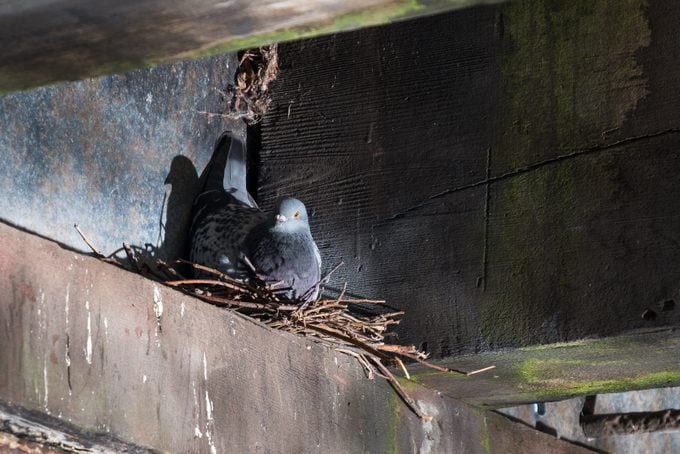
Stroll down any city street, and it won’t be long before you spot some pigeons. Whether you love to feed them or consider them a messy nuisance, rock pigeons (Columba livia), also called rock doves, are pretty much everywhere. It’s obvious they must be mating and producing new generations, but where are all the young? Why do you never seem to see a baby pigeon? Here’s the answer.
Psst—Here’s why pigeons are the most misunderstood birds.
On This Page
Do Pigeons Mate for Life?
Pigeons are generally monogamous, and they tend to stay with one mate for as long as possible. If one of the mated pair dies, the other will eventually choose a new mate, though often not immediately. When he’s ready to mate, a male pigeon chooses a nest site. Then he struts around, coos, puffs himself up, and does his best to attract a willing female. Pigeons can and do mate at any time of year, though in more temperate regions, they may avoid nesting during the coldest months.
Discover 13 fascinating mourning dove facts.
Where Do Pigeons Build Their Nests?
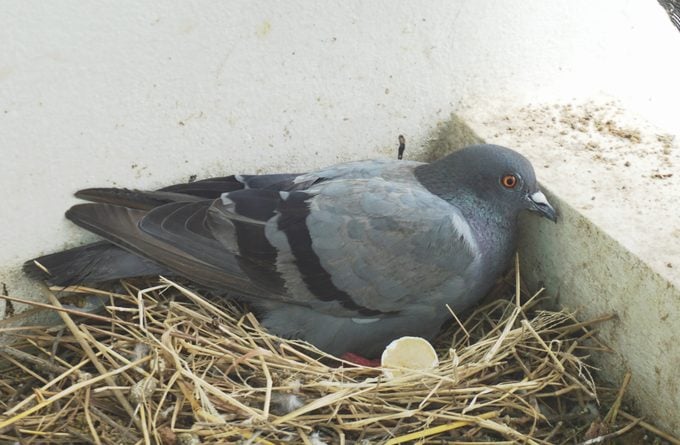
Rock pigeons have been domesticated for so long (as much as 10,000 years!) that we’re not entirely sure exactly where their original range was. They’re now found around the world, especially in cities and other areas where there are lots of humans. Pigeons are cave and cliff nesters, and it turns out that cities are chock-full of spaces that mimic these original nesting locations. You’ll find pigeon nests on window ledges of tall buildings, tucked under the eaves, inside abandoned buildings, and pretty much anyplace else.
Once a pair is ready to nest, the male begins to bring the female small sticks and other similar materials one by one. She weaves them into a nest that can seem a little flimsy at first. But many pigeons reuse their nests again and again, and they usually don’t clean them out in between nesting. Over time, the nest becomes encrusted with old feces, growing into a solid structure for raising a baby pigeon.
Learn more about your backyard birds: sign up for our free newsletter.
What Do Pigeon Eggs Look Like?
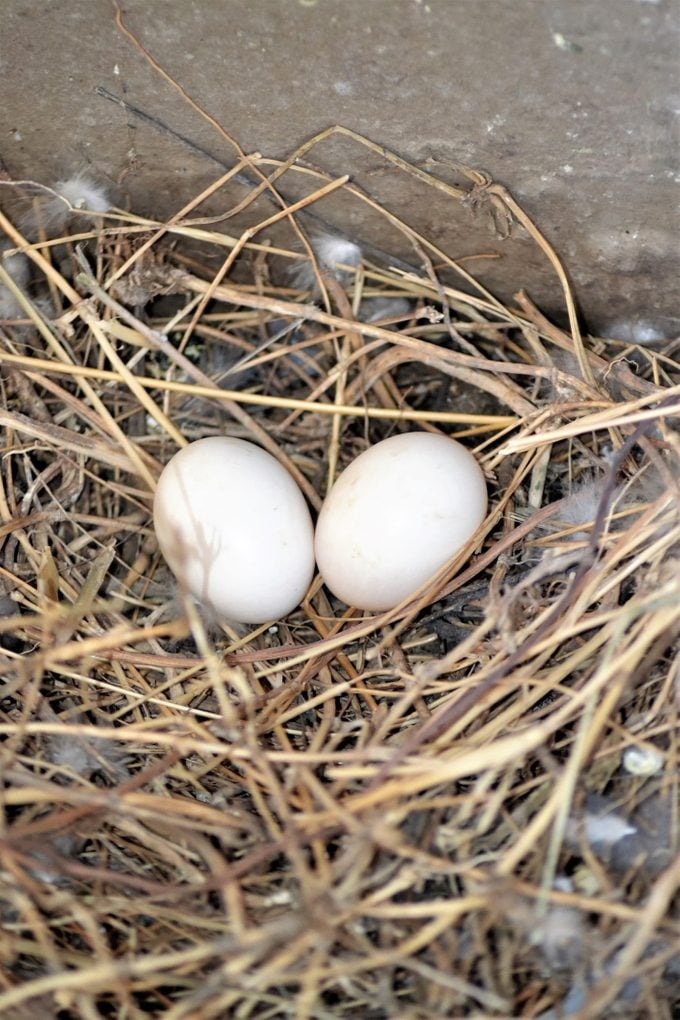
A week or two after mating, the female pigeon lays her eggs. Usually she lays two eggs per clutch, but occasionally she’ll lay a third. Very young or old birds may only lay one egg. The white pigeon eggs themselves look a lot like chicken eggs, but smaller (1.5 inches long or less).
Both parents help to incubate the eggs, which takes about 16 to 19 days. When they hatch, baby pigeons, called squabs, are naked and helpless, entirely dependent on their parents.
Learn about mourning dove eggs and baby mourning doves.
Do Both Parents Care for a Baby Pigeon?
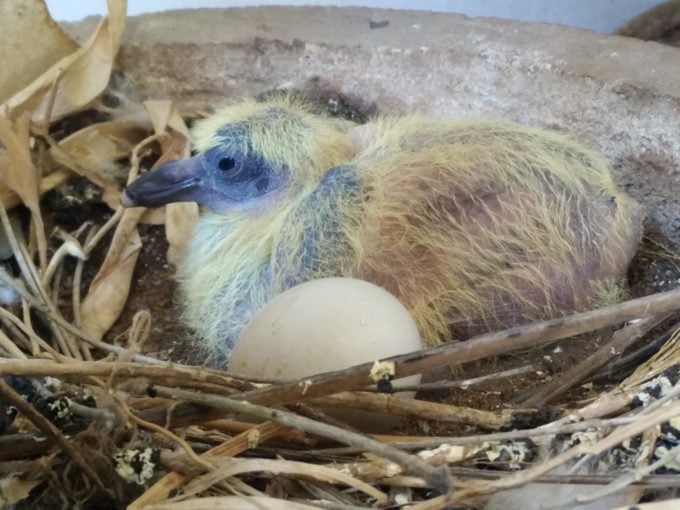
Pigeons are good parents, with both involved in bringing up the squabs. Unlike most other birds, pigeons produce a substance called “pigeon milk,” which is made up of special cells from their own crops, a storage pouch in their throat. Pigeon milk provides antioxidants and immune boosters (much like human breast milk, though it doesn’t come from a mammary gland). Adults, both male and female, feed the squabs pigeon milk for the first 10 days of their lives.
Baby pigeons spend a relatively long time in the nest, as much as four to five weeks. When they’re finally ready to fledge, they look just like adult pigeons. That’s why it’s rare to see a baby pigeon in the wild—by the time they leave the nest, they’re indistinguishable from their parents.
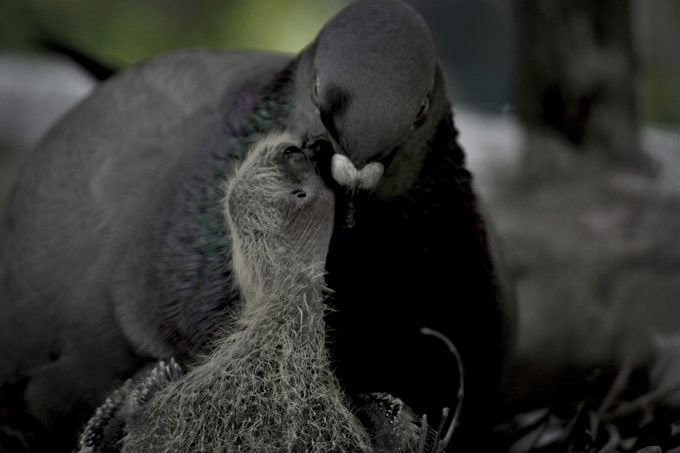
Once they leave the nest, juvenile pigeons immediately start their own lives. Their parents get ready to start over again, since rock pigeons may raise as many as five broods a year if conditions are right. Meanwhile, young pigeons join a new flock, and within a few months, they too will mate and begin producing baby pigeons that few people will ever actually see.
Next, find out how to get rid of pigeons at bird feeders.
